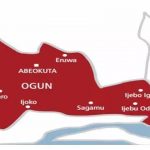The Federal Government will on Wednesday engage with the Nigeria Union of Teachers and the All Nigeria Confederation of Principals of Secondary Schools over a proposal by the Minister of Education, Tunji Alausa, to extend basic education from nine to 12 years.
The proposal, which seeks to merge junior and senior secondary education into a continuous programme, has sparked mixed reactions among education stakeholders, with many calling for thorough deliberations before any policy shift.
Speaking ahead of the meeting, ANCOPPS National President, Musa Ibrahim, clarified that the proposal remains an idea and has not been enacted into law.
“The minister has made a proposal, but it’s not law yet. We have not taken a position on it because we need to study the details carefully. Whether it is 12 years, nine years, or 10 years, we need to ensure it aligns with national education goals,” he said.
Ibrahim further stated that the Abuja meeting would serve as a platform for deeper engagement.
“After our discussions, I’ll provide updates on the outcome,” he added.
Similarly, NUT National President, Audu Amber, emphasized the need for careful assessment before any decision is made.
“Since the day before yesterday, I have refused to comment on this issue because we need to first understand the full picture. This is a national issue, and we must analyse it properly before making any statement,” Amber said.
Meanwhile, the National Chairman of the Parent-Teacher Association, Haruna Danjuma, expressed support for the proposed structure, arguing that it could reduce dropout rates and enhance skill acquisition.
“The idea of integrating junior and senior secondary school into a single 12-year programme is commendable. It will ensure that once a student enters JS1, they continue without interruption until SS3, receiving a 12-year basic education certificate,” Danjuma explained.
He also noted that the new model would eliminate the transition examination between junior and senior secondary school, allowing for a seamless progression.
“There will be no examination barriers between JS3 and SS1, which will reduce cases of students dropping out,” he added.
Danjuma further revealed that the curriculum would incorporate vocational training from primary four, equipping students with practical skills in areas such as electricity and computer education.
“With this approach, students will not only prepare for WAEC and JAMB but will also acquire skills that can support them in career paths,” he stated.
As stakeholders prepare for the crucial meeting in Abuja, the proposal remains a subject of intense debate.
While some see it as a step toward educational reform, others insist that the government must first address challenges such as funding, infrastructure, and teacher training before making such a transition.











